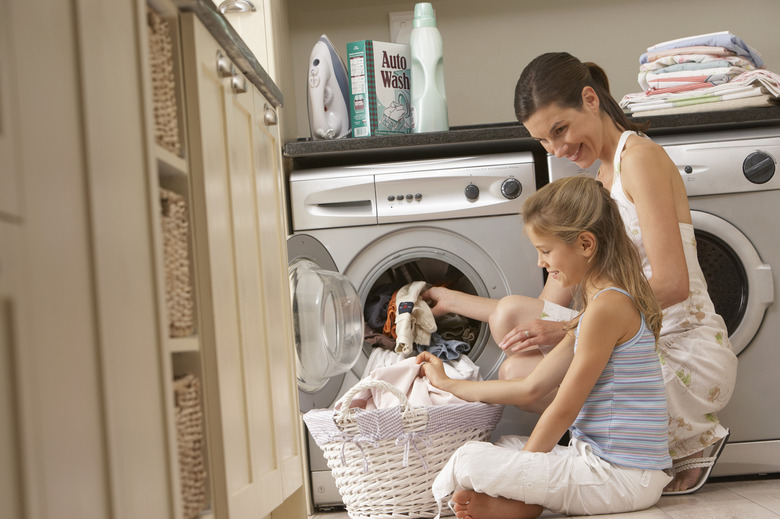Can Washing Machine Water Be Used For Plants?
Conventional top-load washing machines can use up to 40 gallons of water per load. Front loading machines use 20 to 25 gallons — a great improvement, but that's still a lot of water going down the drain. In many parts of the United States you can put that water to additional use. Washing machine water can be used to water the plants in your yard and garden instead of being sent to the sewer drain. This is often the first and easiest step to creating a gray water system.
Gray Water
Step 1
Gray water is water that has already been used in some way inside your home. The most common sources of gray water are the washing machine, bathroom sink and shower, and sometimes the kitchen sink as well. Gray water systems can range from a simple drainage pipe leading outside to complicated plumbing enhancements with water filters, grease traps and other accessories.
- Conventional top-load washing machines can use up to 40 gallons of water per load.
- Washing machine water can be used to water the plants in your yard and garden instead of being sent to the sewer drain.
Black Water
Step 1
While gray water is considered fairly safe, it should not be confused with black water. Black water can be a health hazard to your family and community, because it generally includes toilet and waste water. Some local governments classify the kitchen sink and dishwasher as sources of black water, because food debris goes down those drains.
Local Code
Step 1
Whether you can legally use washing machine water on your plants depends upon where you live. Many local governments have restrictions, or additional set-up requirements before you can legally do so. In unregulated areas such as Arizona, you can simply route the washing machine drainage hose out a window or wall into your yard. In other areas however, you may be required to install special filters and valves, or bury the drainage pipe several inches into the ground.
- While gray water is considered fairly safe, it should not be confused with black water.
- In other areas however, you may be required to install special filters and valves, or bury the drainage pipe several inches into the ground.
Precautions
Step 1
Depending upon the type of laundry you routinely do, you may want to take a few precautions before reusing the water from it. If you frequently launder cloth baby diapers for example, it is unsafe to allow that water to drain into your yard and plants. You can manually replace the drainage hose into the standard outlet pipe with each load or you can install a shut-off valve that allows you to the reroute the water as needed. You'll also want to ensure you're using environmentally safe laundry soap, and if you're concerned about potential germs in the laundry water you might choose to only use it for watering trees, shrubs and ornamentals instead of vegetables.
